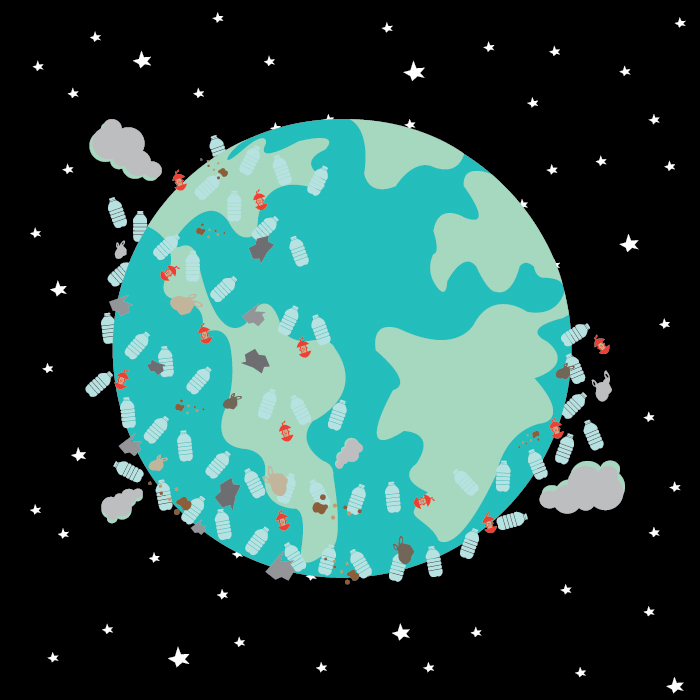New technology illustrates complex human-environment relationship
ARIES conveys how nature and humans interact
April 7, 2014
Climate change may have a stronger influence on the relationship between humans and the environment than previously thought, illustrating the need to develop technologies to study this interaction.
To better demonstrate the relationship, a team of researchers from the U.S. Geological Survey collaborated to create Artificial Intelligence for Ecosystem Services, a method of assessing the value that nature provides to humans. Their system illustrates how the environment and humans interact with each other, according to Ken Bagstad, a research economist at the U.S. Geological Survey and one of ARIES’ developers.
ARIES uses satellite images to analyze migration trends and the changing qualities of forests, Bagstad said. The data from the images allows ARIES to create maps that measure air quality, the availability of clean water and raw materials.
James Igoe, associate professor in the Department of Anthropology at the University of Virginia, said understanding the relationship humans have with the environment is crucial in assessing the effects their consumption and waste have on global climate trends.
“We’re trying to show nature has value and why it’s important both economically, but also … why it’s important to protect nature,” Bagstad said.
The technology behind ARIES has existed in several forms for decades, Bagstad said, but it has been used more frequently during the past 15 to 20 years to study changes in the human-environment relationship. He said ARIES was developed to measure the human ecological footprint more efficiently.
Igoe said mankind’s relationship with the environment is far more complex than people can visualize using technologies like ARIES that measure climate change.
“Without understanding these things, we don’t consider the ethical implications of our consumption,” Igoe said.
The information gleaned from ARIES has allowed people to adapt to and mitigate climate change. Bagstad said businesses have begun to recognize environmental concerns and are implementing policies to conserve resources, such as soda companies choosing to regulate their water supply. Igoe said people will be able to care for the planet more effectively if they find more ways to interact directly and naturally with the environment, by using non-invasive waste disposal and natural energy, for example.
“As much pressure as there is on the planet and natural resources, there’s a role for people and conserving nature as well,” Bagstad said. “Nature could get along without us, but … the choices we make are going to impact nature for a long time to come.”
According to a March 31 report from the United Nations Intergovernmental Panel on Climate Change, rising temperatures are causing environmental phenomena that threaten to disrupt communities around the globe, affecting mortality rates, water supplies, raw materials and resources.
As a result, people are adapting to the environmental changes and altering their surroundings at a faster rate than in previous years. But these adjustments may hinder the natural evolution of ecosystems, the report stated.
The recent acceleration of climate change is causing sea levels to rise faster than before, according to the report. There is also increased population displacement, with people moving farther inland because of vanishing coastlines. The report said climate change will negatively impact the global economy.
The report also said governments are beginning to develop adaptation plans for the first time in response to climate change. In North America, government officials are investing in long-term energy and public infrastructures. European governments have integrated coastal and water management programs and environmental protection and land planning into their policies.
According to the IPCC report, melting snow and ice also alter the quality of water sources by adding more sediments to water systems.
Glaciers are shrinking worldwide at a faster rate than in previous years and if the planet’s average water temperature surpasses 40 degrees, sea levels will continue to rise to dangerous levels, according to Arnold Bloom, professor in the Department of Plant Sciences at the University of California, Davis.
“We have warmer temperatures, sea level rises and changes in precipitation—all of those on which our current state of wealth depends,” Bloom said. “All of those things will determine where people live and how they make their living and how we support ourselves in terms of food production.”








